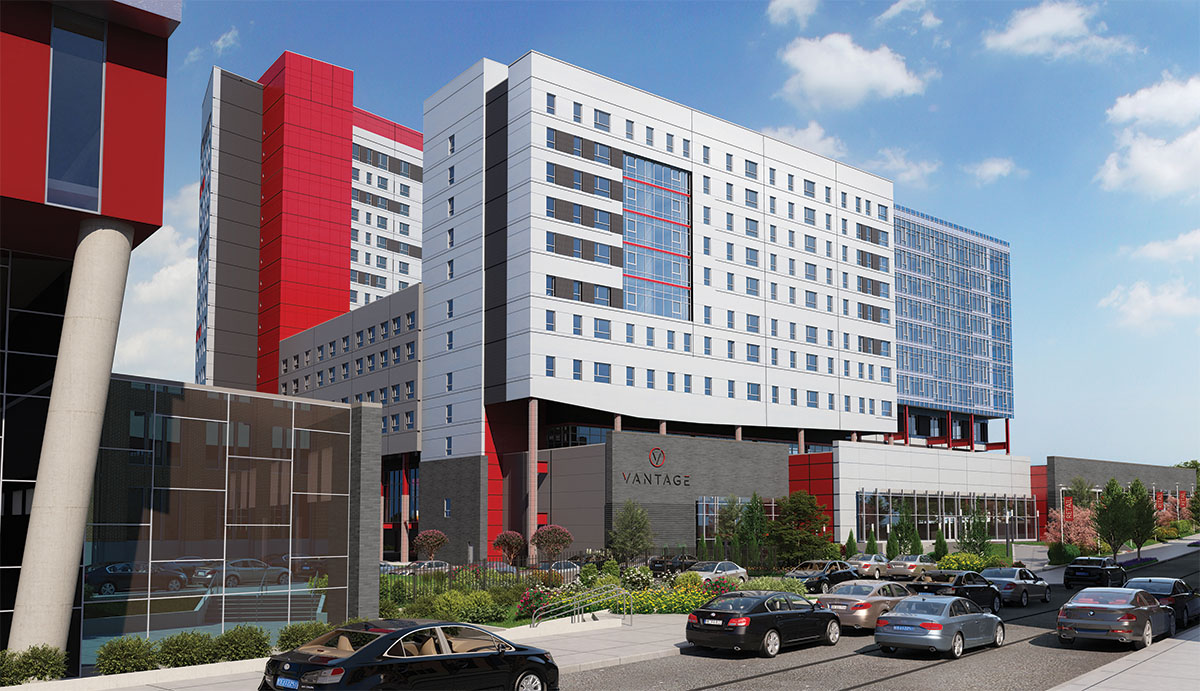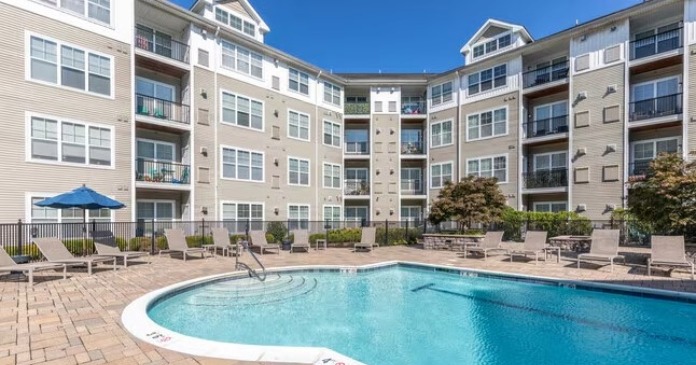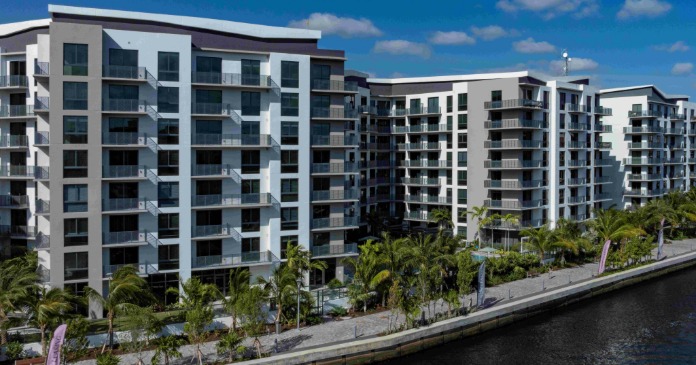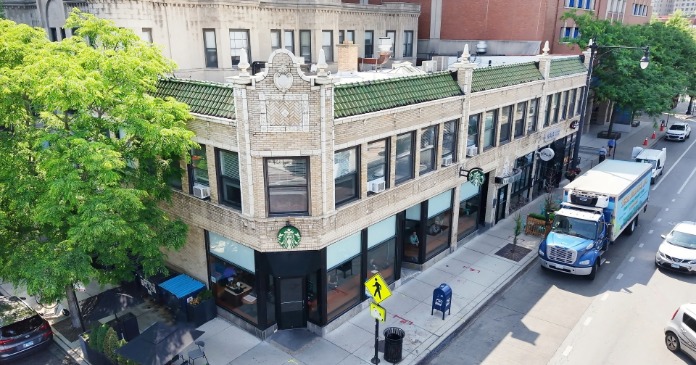Apartment dwellers today expect a high level of technology services. Thanks to the growing demand for bandwidth and internet-enabled devices, managed Wi-Fi and internet connections have become valued commodities that help attract and retain residents in a competitive market, increase property values and even generate ancillary income for property owners.
In a study conducted in 2017 by Xfinity Communities, the multifamily division of Philadelphia-based Comcast, high-speed internet and managed Wi-Fi ranked as important amenities to apartment seekers when making a rental decision, even more than laundry facilities.
Demand is increasing, according to a January 2019 survey of nearly 800 Comcast customers, also conducted by Xfinity Communities, which provides services to more than 189,000 properties representing about 14.7 million dwelling units across the U.S.
In the recent study, titled Products and Amenities Research, technology ranked as the most important consideration when renting an apartment home after location and price, above gyms, clubhouses, common areas and even the quality of schools and school districts. Respondents age 26 to 65+ rated high-speed internet as the single most important amenity an apartment property can offer, suggesting it is an expected necessity among all renter demographics.
And, although the 65-and-older demographic reportedly is slowest to embrace new technology, that sector of the population rated the importance of technology higher than all other age groups. Residents 55 years and older show the most interest in a pre-installed modem in their unit and a desire for community-wide and common-area Wi-Fi, while millennial residents have the highest expectation for fast internet speeds. These results suggest that Wi-Fi and internet are more than just items on a renter’s wish list.

Competing in the tech boom
To remain competitive in an age of constantly evolving technology and a growing millennial renter cohort, multifamily developers are including fiber optic networks, community-wide managed Wi-Fi and outdoor charging stations in their new builds. Property owners and managers with existing buildings must reinvest in cutting edge wireless networks to stay current with the latest hardware and protocols.
These forward-thinking owners are bringing fiber to the buildings and including high-speed internet in the rent, either providing gigabit cable service for all residents, or offering a choice of a lower basic level of service. While updating an older building is more challenging, wireless makes high-speed internet a possibility for most communities.
Although Wi-Fi and internet service are no longer better left to tenants to contract with an outside provider who will reap the profits, property owners and managers have neither the time nor desire to get into the tech business. By outsourcing to an internet provider like Xfinity Communities to maintain the system, they can still remain in control of the service delivered to the residents.
A provider like Xfinity Communities can also retrofit buildings with modern wiring and wireless options like Xfinity Communities’ Select Wi-Fi.
“Every property has different technology requirements, depending on density and demographics. Our engineers work with managers to design the best network so residents can enjoy the speeds they need, delivered through fiber or DOCSIS 3.1 (data over cable service interface specification),” said Adrian Adriano, VP of strategic initiatives at Xfinity Communities.
Select Wi-Fi is supported by Comcast’s Advanced Communities Network fiber optic network that is monitored 24/7. “It sets the foundation to add other Comcast products like internet protocol television (IPTV) service, streaming and the smart apps that some apartment owners are installing in their units to operate unit entry and various different appliances throughout each apartment and the community,” said Adriano.
While traveling away from home, select Wi-Fi residents can stay connected with access to more than eight million hotspot locations around the country.
A managed system also frees up the property management staff to service the residents and the buildings.
Simplifying the move
This is especially true in off-campus student housing, where Xfinity Communities’ Select Wi-Fi, installed across the property and in common areas, makes move-in easier for both the large numbers of residents who onboard over a short period of time and the property managers who assist in the process.
When 350 students moved into the newly completed 986-bed Vantage off-campus student housing community at Temple University in Philadelphia in one day, Xfinity’s Select Wi-Fi, offered as part of the property’s amenity package, simplified the process for students and property staff.
The hectic move-in day was made easier for both, thanks to the service that enabled residents to immediately and automatically connect their devices to online sites, including social media, without having to set up a modem in their unit.
“Before property-wide managed Wi-Fi solutions, residents might spend a day or more after initial move-in installing and trouble-shooting modem boxes. With Select Wi-Fi service already in place, the students needed only get login credentials from the property manager to have use of their online devices—no boxes to set up or modems to turn in at move-out,” said Adriano.
“Setting up Wi-Fi at Vantage was a simple, quick and easy experience. I was able to connect all my devices to the network seamlessly within minutes, without having to install any equipment,” said student resident Joey Taylor.
Xfinity Communities’ onsite Community Account Representatives (CARS) make the process even easier by providing white glove service to the students as they onboard.
“CARS that have a direct relationship with the property management staff are available at multifamily properties across the nation to help the onboarding and move-out processes. They work with regional leadership and owners as an extension of our customer service,” Adriano said.
“Select Wi-Fi is one of the products in our portfolio that serves customers in our multi-dwelling units. We like to say that we start with our product Xfinity On Campus, which may be a student’s first interaction with Comcast, especially if they did not have Xfinity at home. After one or two years, they move off campus where we also have a Wi-Fi solution. Eventually they’ll graduate and if they get a job in the city and live in an apartment again, we are there for them with Xfinity Communities. When they have a family and move to the suburbs, maybe a gated community, we can help them there too. Later in life, if they move to assisted living, Xfinity is there to help them with Select Wi-Fi solutions and their connectivity needs,” said Adriano.

Not just for millennials
As more and more people work from home, faster internet speeds and more reliable connectivity will become a necessity. According to Xfinity’s 2017 Networking with Residents survey, a majority of property managers, owners and developers expect an increase in the number of residents working from home over the next three years. Yet many are concerned their properties are not equipped to support those online job activities. Apartment owners and operators will need to provide residents with a high-performance network to handle the added traffic.
Adriano believes connectivity will become even more important as smart home technologies that enable residents to remotely control lighting, HVAC, unit entry and other appliances gain prominence.
Soon the internet will connect to smart technology that will save both residents and owners money on utilities. Energy efficient smart tech will automate tedious tasks, saving property managers valuable time that will translate to the bottom line. Meanwhile, smart technology is becoming more cost effective, providing property managers who integrate it into their communities a marketing advantage with the prospect of higher retention rates and increased profitability.
With the increase in automated apartments will come new renter expectations from all age segments—tech savvy millennials, empty nesters and baby boomers entering senior housing.
Investing in the latest technological advancements should help owners meet demand and set their communities apart from the competition.
“Internet and Wi-Fi are the backbone of technology amenities in many multifamily communities. Looking ahead, smart communities will become more prevalent in the coming years as it simplifies the life of the property manager and residents alike. In fact, we are already working with several properties to offer solutions for smart locks, lighting and thermostats as well as water leak detectors, and the response has been overwhelmingly positive,” said Adriano.
Author Wendy Broffman















